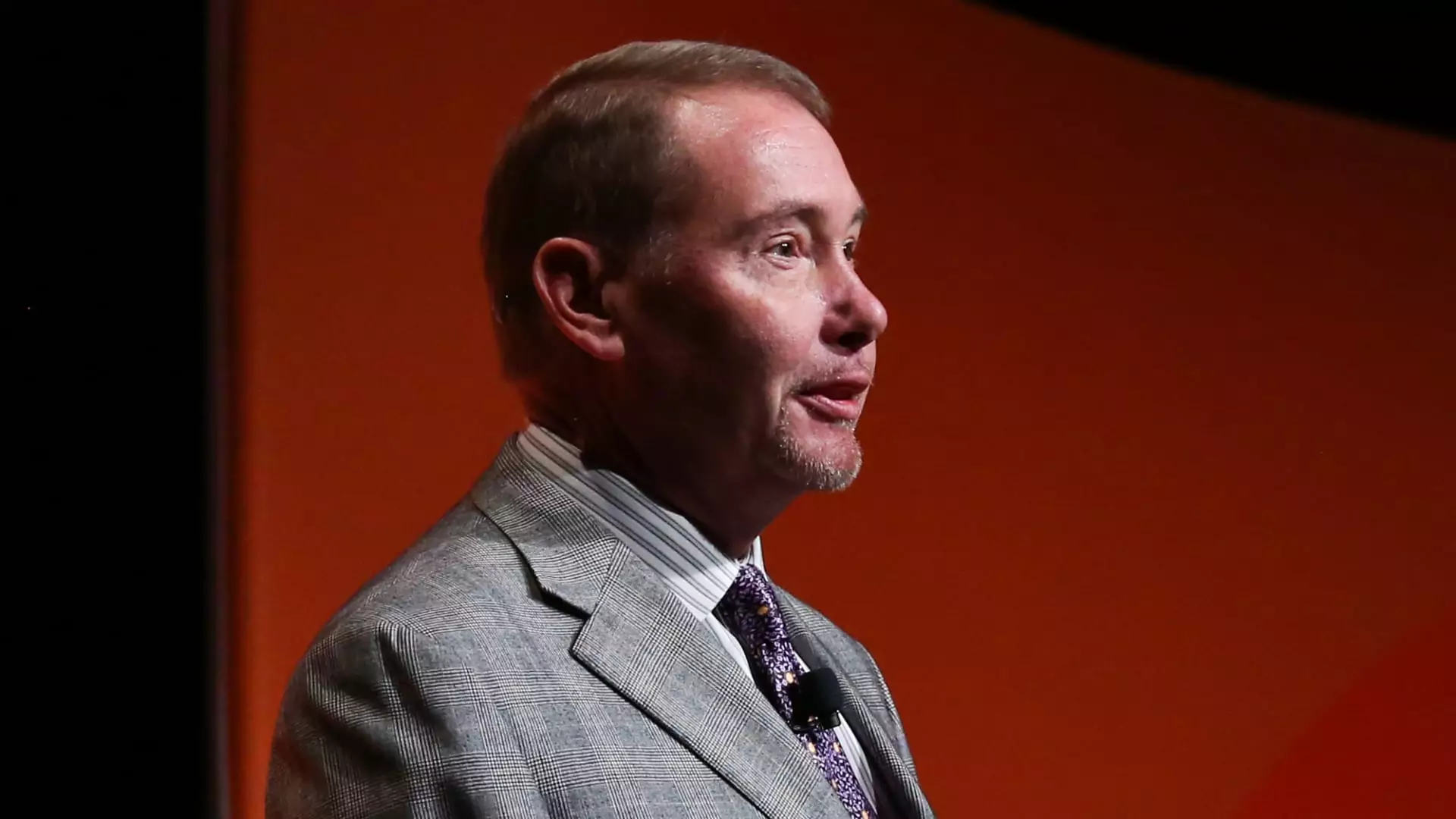In the ever-fluctuating world of finance, anxieties about impending economic recession loom large, especially as articulated by Jeffrey Gundlach, the CEO of DoubleLine Capital. With a pronounced caution, he suggests that investors should brace themselves for a possible wave of volatility, hinting at a substantial risk factor that many may underestimate. The sobering reality is that we are standing at a precipice; the forecast of a recession within the next few quarters is not merely speculative but is increasingly grounded in prevailing economic indicators. Gundlach’s assertion of a 50% to 60% probability of recession signals that complacency may no longer be an option for investors.
Reassessing Portfolio Strategies
Gundlach’s proclamation underscores the urgent need for investors to meticulously reassess their strategies. He advocates for a proactive approach—urging a significant upgrade to portfolios and a shift towards greater diversification. The firm’s decision to reduce the use of borrowed funds to the lowest level in its 16-year existence reflects a cautious stance that many might find compelling. This evolution in strategy is not just prudent; it’s a necessary response to the mounting uncertainty exacerbated by geopolitical tensions and domestic policy changes, such as President Trump’s tariffs, which have sparked fears of a broader economic slowdown.
Emerging Markets: The Silver Lining?
Among the thunderous clouds of uncertainty, Gundlach points to potential opportunities lying beyond U.S. borders. His recommendation for investors to turn their gaze towards European and emerging markets presents a compelling counter-narrative to conventional wisdom. This pivot acknowledges that while America grapples with its internal challenges, there are narratives of resilience and growth overseas. However, this strategy demands a certain level of adaptability and willingness to navigate unfamiliar waters. Investors must weigh the risks and rewards carefully, recognizing that the shift away from a focus solely on U.S. assets could usher in a significant cultural and strategic overhaul.
The Threat of Stagflation
The specter of stagflation looms ominously as economic dynamics shift under the Federal Reserve’s latest updates. The acknowledgment of increased inflation forecasts bundled with downgrades to economic growth presents a dire narrative not often seen in thriving economies. Gundlach is right to emphasize that the chances of stagflation, where growth stagnates amidst rising prices, should not be underestimated. Such a scenario could create a toxic environment for investors who remain wedded to outdated models and assumptions about economic stability.
Investors: Time to Act
The prevailing market environment, laden with uncertainty, poses serious questions for investors about their readiness to act. Gundlach’s insights serve as a clarion call to shed the shackles of inaction. His message is clear: the time for reassessing and realigning investment strategies is now. For those willing to embrace change, there is a possibility to emerge stronger from the turbulence ahead. The capitalist spirit thrives on resilience and adaptability, and as economic landscapes shift underfoot, the ability to pivot will define the successful investor of tomorrow.

